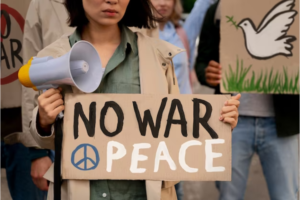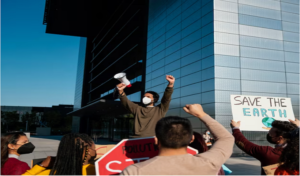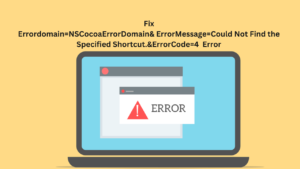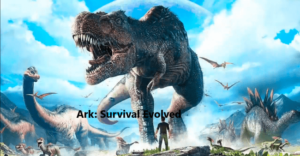How war can result in severe humanitarian crises
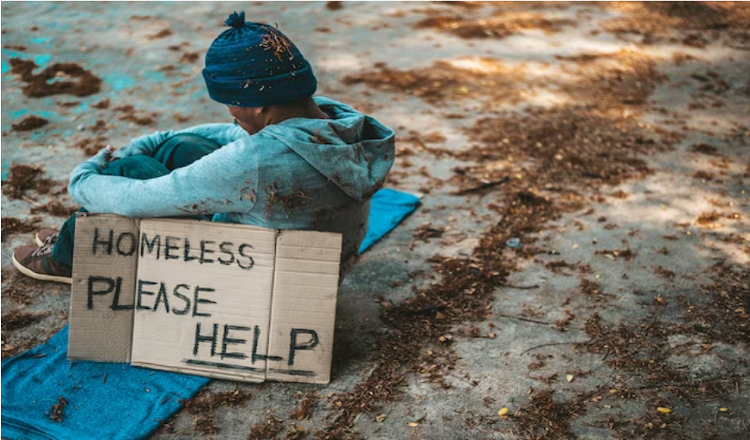
Since the beginning of time, war has always been a part of human history. But it is impossible to say enough about how terrible war is for civilians. War has the ability to cause a wave of humanitarian crises that can affect people, communities, and even whole countries for a long time. Even though the USA is one of the world’s most powerful countries, war can still hurt it. In fact, history shows that wars can cause serious humanitarian crises in the United States that touch millions of people.
When we think of war, the first things that usually come to mind are battlefields, people, and weapons. But war has effects that go far beyond the front lines. Civilians, who usually have nothing to do with the wars, can suffer the most. They could lose their homes, their ways of making a living, and even their lives. War can force whole groups of people to leave their homes. This can lead to packed refugee camps where people can’t get enough food, water, or medical care.
Humanitarian issues in the US could be affected by war. This is a subject that deserves our attention. In this piece, we’ll look at how war can cause big problems for people in the United States. We will look at both the direct and indirect effects of war on civilians, as well as the psychological effects of war and the role of humanitarian organisations and states in dealing with the humanitarian crisis that war causes. So, let’s get started and find out more about this important subject.
Historical context
From the American Revolution to the War on Terror, the United States has been in a number of wars and fights. The general population has been affected in different ways by each of these wars, and the effects of war are often very bad. Some of the most important wars in US history are the Civil War, World War II, and the Vietnam War. Each of these wars had different effects on people’s lives.
The Civil War, which lasted from 1861 to 1865, is still the deadliest war in US history. About 620,000 soldiers and civilians died during the war. The war had a big effect on people, especially African Americans, who had to deal with slavery, segregation, and unfair treatment for many years after the war finished. World War II, which lasted from 1939 to 1945, was another major war that had a big effect on everyday people. Around the world, about 70 million people died because of the war, including bystanders who were killed by bombs and other acts of violence. During the Vietnam War, which lasted from 1955 to 1975, an estimated 2 million Vietnamese citizens and soldiers also died.
These and other wars have left permanent scars on US society, and their effects on people are still being felt today. Understanding the history of war in the United States is important if you want to understand the present humanitarian situation and find ways to stop future wars.
Effects of war on people in a direct way
Civilians can be directly hurt by war in terrible ways, like being forced to move, getting hurt, dying, or losing their property. Civilians can feel the effects of war both physically and mentally, and these effects can last for a long time. When people are displaced, for example, they may lose their homes, food, and water. This makes them more likely to get sick and die. When someone gets hurt or dies, it can be hard for their family to deal with the loss. Losing land can make it hard to make money and keep food on the table for a long time. According to the United Nations, most people who are hurt by armed violence are civilians, and children are especially at risk.
Studies of wars like the ones in Iraq and Afghanistan have shown how terrible it is for people. In Iraq, the war from 2003 to 2011 forced more than 4 million people to leave their homes and killed about 500,000 civilians. Since 2001, the war in Afghanistan has forced more than 2.6 million people to leave their homes and killed about 47,000 civilians. These numbers show how much war hurts people and how quickly something needs to be done about it.
Effects of war on people that aren’t direct
As bad as the direct effects of war on people can be, the indirect effects can be just as bad. Essential services like health care, food, and water can be interrupted by war, which can cause other humanitarian problems. When healthcare services are interrupted, it can make it hard for people to get access to treatments that could save their lives. When food and water supplies are cut off, people can become malnourished, go hungry, and get sick from water. Civilians, especially children and the old, can be hurt by these problems for a long time.
Indirect effects of war can also cause secondary humanitarian disasters, such as more domestic violence, mental health problems, and poverty. In these kinds of settings, women and children are often the most vulnerable. They are more likely to be taken advantage of or abused. Disrupting schooling can also have long-term effects, like making it harder to get a job or get ahead financially. The indirect effects of war on civilians show how important it is for humanitarian help to look at the immediate and long-term effects of war, not just the immediate ones.
Effects of war on people’s minds
War can have deep and long-lasting effects on the minds of people. Violence and loss can cause trauma, Post-Traumatic Stress Disorder (PTSD), and sadness, among other mental health problems. These problems can have a big effect on people, families, and towns, making the humanitarian crisis in war-torn areas even worse. For example, PTSD can make it hard for people to act normally, making it hard for them to work, study, or take care of their families. Depression can also have far-reaching effects on a person’s physical health and make other humanitarian disasters, like starvation and being forced to move, worse. It is important to help people deal with the psychological effects of war if you want to help them in a complete way.
Helping people during a war
Humanitarian groups and countries are very important when it comes to helping people in need because of war. These groups help people who are in conflict by giving them food, shelter, medical care, and security services, among other things. But it can be hard to help people in war-torn places because of the risk of violence and how hard it is to get to them. Humanitarian organisations also have trouble getting the money and tools they need to help people affected by war in a wide range of ways. Coordinating relief efforts between different groups and government agencies can also be difficult and requires good communication and working together. Even though these problems exist, it is important for humanitarian organisations and governments to react to the humanitarian crisis caused by war in order to save lives and make people’s lives easier.
Conclusion
In the end, both direct and indirect humanitarian effects of war can be very bad and have devastating effects on people. The psychological effects of war can cause trauma, PTSD, depression, and other mental health problems. The indirect effects of war can disrupt critical services like healthcare, food, and water supply, leading to secondary humanitarian crises. In the United States, dealing with the humanitarian effects of war takes a whole-person approach. This means helping those affected by conflict and also dealing with the long-term effects of war on communities and individuals. Humanitarian organisations and governments play an important part in helping and supporting people affected by conflict, but they also face a lot of difficulties in doing so. It is very important to put the human effects of war at the top of the list and work to end conflicts, stop future wars, and promote peaceful answers to conflicts. In the end, dealing with the humanitarian effects of war is the only way to save lives and reduce pain in the USA.
Read More You May Like:
- How social media shapes public perception on war and conflict
- Examining the root causes of recent conflicts around the world
- Examining the psychological effects of war on soldiers
- Delving into the rise of civil conflicts and its implications
- Defining international laws surrounding war and its effect on nations


